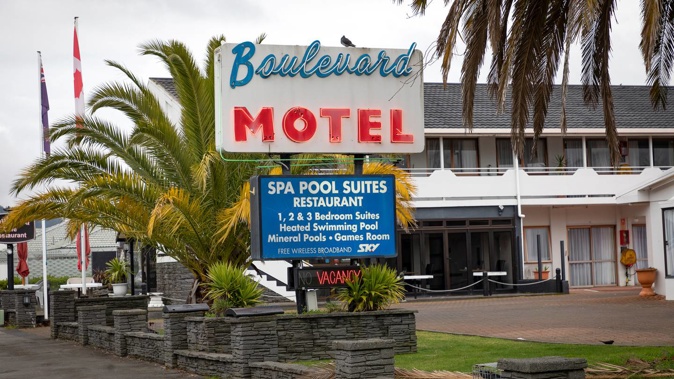
State housing agency Kāinga Ora Homes and Communities’ borrowing capacity has been extended by $2.75 billion for the 2022/23 year and its funding will in future come from the Crown, not private sources.
Megan Woods, Housing Minister, said Cabinet agreed to increase the entity’s borrowing capacity and changed where it borrowed from.
The $2.75b would come from the Crown’s New Zealand Debt Management Office, was cheaper and gave more certainty than borrowing from private sources, Woods said today.
But Chris Bishop, National’s housing spokesperson, said the debt capacity expansion was “a reflection of the fact that Kāinga Ora is a bloated, inefficient, dysfunctional organisation”.
He added: “Now that the Crown is going to the lender, it has an obligation to ensure some discipline and efficiencies there.”
There was some merit in a lower cost of borrowing because the agency had been paying a higher premium in the private market, he acknowledged.
“But I suspect private lenders have looked at the agency and said it’s barely a going concern as an organisation because it’s riddled with debt and they wanted a higher rate of interest. So now the obligation is on ministers and the Government to get KO into shape,” Bishop said.
/cloudfront-ap-southeast-2.images.arcpublishing.com/nzme/WNAHSCSXISVL5WIPK5MP6JQDTY.jpg)
Minister for Housing and Urban Development Dr Megan Woods. Photo / NZME
In July, the Herald reported Woods was warned not to grant any future Budget bids to Kāinga Ora for a time, after fears of unsustainable debt levels.
- Kāinga Ora under fire for ‘broken’ promises
- 'Worst landlord': Homeowner claims Kāinga Ora advised moving to avoid neighbours
A leaked document from the Ministry for Housing and Urban Development showed spiralling construction costs caused a debt blowout at Kāinga Ora, with fears the Government will be unable to completely repay the increase in debt over the next 60 years.
The document, dated June 17, said Kāinga Ora was investigating cost-cutting measures such as pausing a programme to improve heating in homes, or retrofitting old homes with improvements making them accessible to people with disabilities.
Officials said the ideas might result in some cost savings but they will not address the root cause of the blowouts.
Today, the Debt Management Office said Kainga Ora’s future financing requirements would be met by its loans in future, not from private markets.
“Any changes to forecast funding requirements for the Crown resulting from these announcements will be incorporated in the updated forecast core Crown borrowing programme, alongside the 2022 half-year economic and fiscal update in December,” the office said.
The office was working with Kāinga Ora to ensure that agency’s expenditure would be included in the Sovereign Green Bond Programme, the office said.
Kāinga Ora is this country’s largest residential landlord housing more than 186,000 people in more than 69,000 properties.
But more than 20,000 are on the waiting list for housing and much existing state stock is not up to the Government’s own healthy homes standards.
So a rapid building programme has been under way for some years, demolishing older unfit-for-purpose homes on big sites and building new homes which meet the Building Code and Building Act, are warm and dry and make better use of land.
/cloudfront-ap-southeast-2.images.arcpublishing.com/nzme/WCUAHFOERZBANBPTLMXXOHRFBA.jpg)
National's housing spokesman Chris Bishop. Photo / Mark Mitchell
The Ministry of Social Development’s housing register showed 24,996 applicants as at September 30, up 1.8 per cent annually.
The register gives the number of applicants assessed as eligible for housal housing and who are ready to be matched to a suitable property.
The office said under Kāinga Ora’s current funding and financing model, the full capital cost of building new social or supported housing and retrofitting existing homes had been borrowed.
Future rental revenue is applied to pay interest costs and make principal repayments. Since 2018, Kāinga Ora has issued debt in private markets as the primary source of borrowing in the name of its subsidiary, Housing New Zealand.
The maximum level of private borrowing, which has increased over time, has been approved jointly by the Ministers of Finance and Housing, the office said.
Woods said: “We are committed to ensuring New Zealanders in need have access to warm, dry homes. We have added over 10,600 additional public homes through Kāinga Ora and Community Housing Providers, as well as over 4000 more transitional houses.”
Bishop said Kāinga Ora rent debt totalled $16.3m in June 2022, up a staggering 81 per cent from July last year.
“In July 2021, the amount of money owed to Kāinga Ora in rent was $9m. A year later, that number skyrocketed to $16.3 million. Over 9700 Kāinga Ora tenants are now in arrears. Rent paid by Kāinga Ora tenants is related to their income, so the fact that so many tenants can no longer even afford that shows just how bad the cost of living crisis has got under Labour,” he said.
From January to June this year, there was a 45 per cent increase in the number of state tenants who had fallen behind in their rent payments by one to six months, he said.
“Even with their subsidised rent, it’s hardly surprising that so many of these tenants are struggling to keep up when the cost of food, petrol and other essentials are all going through the roof. It’s devastating to think about parents having to make a call between paying the rent, or feeding their children.
Take your Radio, Podcasts and Music with you








